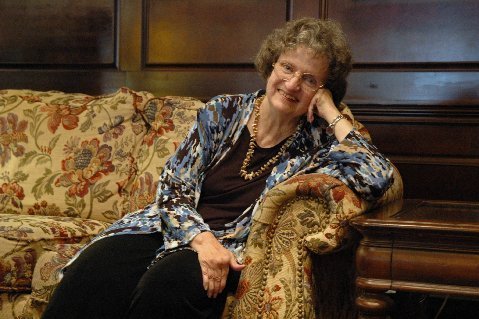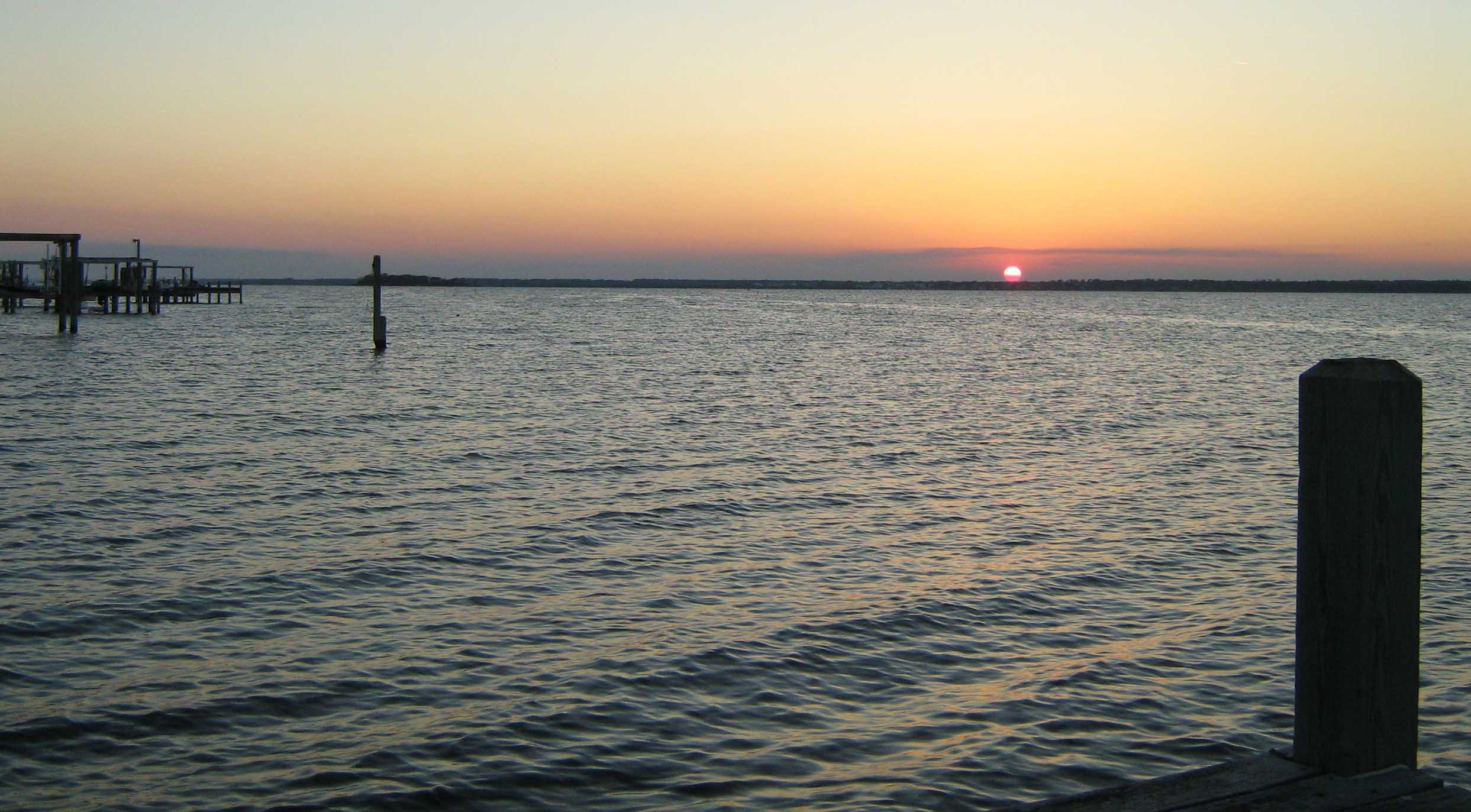 An interview with Emilie Griffin—author of the new book Wonderful and Dark Is This Road—on the lives of Mystics and how they relate to each one of us
An interview with Emilie Griffin—author of the new book Wonderful and Dark Is This Road—on the lives of Mystics and how they relate to each one of us
EXPLOREFAITH: Different spiritual writers and thinkers define mystics in different ways. How would you describe a mystic?
EMILIE GRIFFIN: I think a mystic is a person who is very close to God.
Historically, the term “mystic” is drawn from the Greek word mystos (mustes), which means, one who has special knowledge. The term is applied to someone remarkable, someone spiritually advanced.
Most of us, when we use the word “mystic,” are thinking about people who have estatic experiences, visions and other spiritual gifts. But as I say in my book Wonderful and Dark Is This Road, I think there are many unrecognized mystics--mystics who fly below the radar--who are very close to God, who are transformed by that relationship, but may never earn the title of “mystic” in the eyes of others.
I wrote about it this way: “A mystic is a person far advanced in the spiritual life, one who very likely spends time in prayer and worship with a disciplined regularity. But surely, this definition would include a fairly large number of people.”
Throughout the book I am trying to show that there’s a difference between authentic mystics (people who are very close to God) and those who are well-recognized as mystics because everyone is agreed about how far advanced they are in the spiritual life. (These more “famous” mystics are also authentic; but my point is, they’re only a few among a much larger number of those who enjoy the intimate friendship of God.)
Another point worth mentioning is that there is no formal process for saying who the mystics are. The title of “mystic” is awarded by an informal consensus, a common opinion. To make any account of it we have to rely on what is said by the mystics themselves as well as observations and interpretations made about them.
EXPLOREFAITH: In the introduction to your book, you refer to the "recognized stages of the mystic journey." Does this mean that there are identifiable patterns that all mystics seem to follow?
EMILIE GRIFFIN: Students and scholars of mysticism (like Evelyn Underhill) have traced a path of recognized stages. Most of us receive that wisdom and abide by it. In a sense, I think this notion is reassuring to people who are beginning in the spiritual life. They are glad to know that there is a path of some kind and you can guess what may lie ahead.
The idea of recognized stages is reassuring. But it shouldn’t be confining.People shouldn’t be saying, “Hmmm...am I out of the purgative stage yet and into the illuminative way?” The grace of God is very unpredictable, and God’s plan for each person is unique to that person.
Usually spiritual teachers say that beginners in prayer get a great infusion of joy and delight, which is followed after awhile by a time of dryness. That may happen for most of us, but there are really no rules about the spiritual life. It is an adventure, uncharted waters.
EXPLORE FAITH: What can modern-day seekers learn from the lives of the mystics, most of whom lived hundreds of years in the past?
EMILIE GRIFFIN: I think we can learn a lot from the mystics about the love of God. Many of the mystics write and speak passionately about a great love that has been poured out on them . It reminds me of that text in Jeremiah where The Lord says, “I have loved you with an everlasting love.” There are many texts in the Bible that give evidence of God’s love and tenderness, for example, Hosea 11 and many readings in the Gospel of John. Butthe mystics (in many centuries) are not just reading about this love. They are experiencing it, and giving new witness of that intense love and friendship. I think they can invite us to come closer to God and take the risk of experiencing something like that ourselves.
You say that most of the mystics lived hundreds of years in the past. I guess I would say that most of the mysticswe have heard of lived far in the past. But for example, Thomas Kelly, a Quaker, I think is an authentic mystic. Probably Rufus Jones is too. Both of them are twentieth-century Quakers. Frank Laubach, another Protestant spiritual giant, wrote a book called Letters of a Modern Mystic. Wherever I can in my book, I mention contemporary or very recent people who can be considered mystics. They would never seek the title, mind you, but they are just as intense and holy as, for example, George Fox or George Herbert.
EXPLORE FAITH: For many people with families and jobs and an overload of day-to-day responsibilities, the idea of becoming a mystic seems far from attainable. They may feel that they don't have the time, the energy, or possibly even the inclination. What would you say to someone who wants a deep relationship with God but feels that the mystic path is beyond their capabilities?
EMILIE GRIFFIN: I agree with you that the idea of becoming a mystic seems unattainable. I also think it’s not desirable to set oneself impossible goals in the spiritual life. We shouldn’t go about spiritual life as if we could (under our own steam) achieve a high level of spiritual greatness. We can’t. It is best to stick with the gospel teachings about humility, and follow the tax-collector’s attitude rather than that of the Pharisee. Even though a certain discipline is required, spiritual transformation depends on the grace of God; it is a gift.
Really, it’s more about setting our expectations aside and coming close to a God who wants to shower love and blessedness on us. God’s love is transforming. We don’t become mystics by wanting to. It’s what God wants for us that counts.
Now, about the overload of daily responsibilities. Most of the mystics had an overload of daily responsibilities. Brother Lawrence spent his days as a cook and a sandalmaker, but learned to experience God’s presence in the middle of things. There are dozens of these “everyday mystics” who learn to practice the love of God in a hectic and high-pressure circumstance. I think we should find this encouraging.
Looking back on the lives of mystics of the past, we glamorize the mystical life. But John of the Cross, for example, had a very tough life. He had administrative responsibilities, founded new communities, built monasteries (and laid the bricks himself) acquired real estate, organized picnics for his fellow friars. He and his colleague, Teresa of Avila, were sandbagged by the political pressure and envy within their religious communities. John’s mystical writing could be viewed as a sideline. Probably his prayer life was limited in terms of time spent, but unlimited in the blessing it gave him. His relationship to God was central to everything in his life. He served as spiritual director and confessor to thousands, and they all said he helped them to be cheerful and deal with their anxieties.
EXPLORE FAITH: The title of your book claims thatWonderful and Dark Is the Road. What makes the mystic path both wonderful and dark?
EMILIE GRIFFIN: First of all, it is about an adventure in the life of the Spirit. I come across people for whom “prayer” is a meaningless word. At the most they think of it as a tiresome necessity or duty. But the mystics open up a wonderful path of faith...and they invite us to set out on the path as adventurers and pilgrims.
I have always felt that this metaphor of the journey or the path or the Way is compelling. Then I came across the statement that the spiritual path is “wonderful and dark.” It comes from one of the best-loved handbooks of the spiritual life, Abandonment to Divine Providence, by Jean-Pierre deCaussade (1675-1751). DeCaussade writes: “The way of pure faith...enables us to find God at every moment. Can anything be more magnificent, more mysterious, and more blessed...What has to be done to produce such an amazing effect? Just one thing: let God act and do all he wishes according to our state in life. Nothing in the spiritual life is easier, and it is within everybody’s reach. Yet so wonderful and dark is this road that we need great faith to walk along it." Notice that DeCaussade is also writing about “the present moment.” But in this case, his present moment is “wonderful and dark,” requiring pure faith.
EXPLORE FAITH: Do you think the mystics that you write about were a select few chosen by God, or does anyone have the potential for being a mystic?
EMILIE GRIFFIN: Can just anyone become a mystic? Well, I’m not really in charge of that information. Some scholars think it is a matter of temperament. I think it really has more to do with the willingness of some individuals to follow their own yearning for God wherever the path may lead.
EXPLORE FAITH: What was your motivation for writingWonderful and Dark is the Road?
EMILIE GRIFFIN: I have found the mystics very encouraging. They are motivating to me. In a sense, when I first began to become acquainted with them through their writings and history, I first began to believe in the spiritual life as a reality--something that really happens and transforms ordinary people.
You see that with the first disciples of Jesus: fishermen, men without much education, who underwent a remarkable change because of God’s grace. And it didn’t stop with the first century. It keeps on happening. The mystics help us to see that.
I like the way the Evelyn Underhill puts it. She says the mystics have gone ahead of us, motivated by their love. They are lamps to our feet. We can follow in their footsteps. It’s not up to us to say we can’t if God thinks we can.










